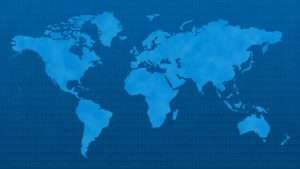https://www.youtube.com/watch?v=UuzC_6P13e0
As students and society are increasingly using digital technologies, students need to be equipped with the knowledge and skills of how to interact in a digital world. When students fail to use technologies in an appropriate manner, it can create problems for not only parents but schools as well (Ribble, 2012). It is therefore the responsibility of educators to provide students with the skills and knowledge to have them use digital technologies in a safe and responsible manner.
B.C Curriculum

Image courtesy of pixabay.com
The B.C. Ministry of Education recognizes the importance of having students acquire the skills and knowledge to be successful in today’s technological age. Under the Digital Literacy Framework, digital citizenship is listed as one of the characteristics students are expected to understand and practice. This includes understanding social, human and cultural issues about technology and practicing ethical behavior.
What is Digital Citizenship?
According to Ribble (2015), digital citizenship is the “norms of appropriate, responsible behavior with regards to technology use” (p. 15).There are nine different aspects of digital citizenship which include:
- Digital Access: Who can participate in digital society?
- Digital Commerce: The buying and selling of good electronically
- Digital Communication: Electronic exchange of information
- Digital Literacy: Learning about how to use technology
- Digital Etiquette: Standards of conduct when using digital technology
- Digital Law: Laws, rules and policies over digital technologies
- Digital Rights and Responsibilities: Digital rights and freedoms
- Digital Health and Wellness: Physical and psychological well-being
- Digital Security: Being safe on digital technologies
Bibliography
BC Ministry of Education. (2017). Digital Literacy. Retrieved from http://www2.gov.bc.ca/gov/content/education-training/k-12/teach/teaching-tools/digital-literacy
This website discusses BC’s Digital Literacy Framework. It defines Digital Literacy and describes the different characteristics of the framework which include Digital Citizenship. The website also provides examples of technology learning activities for students according to Grades. It is a relevant resource as it discusses what teachers should be addressing and teaching in regards to digital technologies.
Ribble, M. (2012). Digital citizenship for educational change. Kappa Delta Pi Record, 48(4), 148. doi:10.1080/00228958.2012.734015
This book contains information on digital citizenship and defines the nine elements students should know. It provides teachers with resources such as scoring rubrics, activities and lessons for each element of digital citizenship. It is a practical resource teachers can use to incorporate digital citizenship into the curriculum.